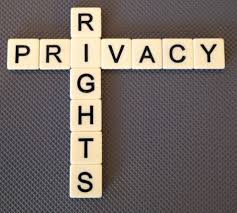Right to Privacy protection rules regulating police force and national security by using personal information is usually usefully understood within two distinct categories first, substantive roles that limit usage of and usage of information and, second, procedural rules that offer safeguards to inspire compliance and make sure accountability for complying failures. Neither the Composition nor any law can anticipate before hand every particular to privacy issue elevated by future technologies. So the evolving balance between your government’s need to intrude for the private lives of an individual in the support of its community safety mission and the necessity to maintain individual liberty may be maintained over time by giving a degree involving transparency in using new technologies, in addition to accountability to rules assured by judicial and legislative oversight.
Protection Of Right To Privacy
















